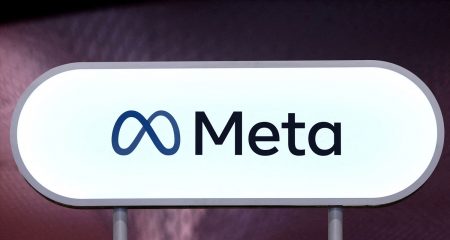 These are the articles, videos and more that caught the attention of TechCentral’s editorial team in the past 48 hours.
These are the articles, videos and more that caught the attention of TechCentral’s editorial team in the past 48 hours.
- Winamp releases source code, asks for help modernising the player: Ah, the good old days, when there was nothing better than using Winamp to play music. The iconic Winamp media player has fulfilled a promise made in May and released its complete source code on GitHub, inviting developers to collaborate on the project. Much llama ass-whipping lies ahead. More on BleepingComputer. TS
- Meta’s big tease: Meta’s Orion AR glasses look like regular specs but come with a hefty US$10 000 “not for sale” price tag. They beam holograms, let you play 3D Pong and even promise to replace your smartphone – someday. The Orion AR glasses offer advanced digital overlays via micro-LED projectors and silicon carbide lenses but are too costly and complex to mass-produce. Controlled by a neural wristband and compute puck, they allow AI interactions and 3D experiences. Meta paused their release, aiming for future versions that are smaller, more affordable and smartphone-replacing. Read more on The Verge. DM
- The most capable open-source AI model yet could supercharge AI agents: The Allen Institute for AI (Ai2) has released Molmo, an open-source multimodal AI model capable of interpreting images and text. Molmo enables developers to build AI agents that can perform tasks like browsing and drafting documents. Unlike proprietary models, Molmo is fully open source and can be fine-tuned extensively, potentially supercharging the development of next-gen AI agents for practical use. Read more on Wired (soft paywall). DM
- Why did Caroline Ellison do it?: Caroline Ellison, former CEO of Alameda Research, became entangled in Sam Bankman-Fried’s crypto schemes, driven by a desire to please him and prove herself. Isolated and consumed by work, she gradually compromised her values. Ultimately, as this article makes clear, her desire to be the “good girl” led her down a tragic path. Read more on The Verge. DM
- LG TVs start showing ads on screensavers: LG has announced it is adding advertisements to its TVs’ screensavers. The move embodies how ads are a growing and virtually inescapable part of the TV-viewing experience, even when you’re not watching anything. LG appears to know that screensaver ads don’t excite users, yet here we are, and they are still doing it. Read more on Ars Technica. TS
- Why Mark Zuckerberg thinks AR glasses will replace your phone: Meta CEO Zuckerberg sits down with The Verge’s deputy editor, Alex Heath, at the company’s Meta Connect conference to talk all things AR, AI and social media. It’s worth a watch. Catch it on YouTube. TS
- Microsoft is turning Copilot into an AI presenter to read you the news: Microsoft’s rework of Copilot for mobile devices will not only allow users to curate their news feeds, but the AI will read the content out much like a newsreader would on TV. The move is part of Microsoft’s attempt to entice Copilot users into using the application more. Read more on The Verge. NN
- Modi meets top US tech leaders amid semiconductor push: The US is looking to minimise the risk of geopolitical tensions affecting its chip supply, and India has raised its hand as the next possible manufacturing destination. Indian Prime Minister Narendra Modi this week met with US officials to discuss the matter. Read more on BBC News. NN
Top stories on TechCentral in the past 24 hours:
- Eskom says prior tariff hikes were ‘inadequate’ as it seeks 36% increase
- South Africa needs the Post Office, e-commerce pioneer says
- Mira Murati is latest high-profile exit from OpenAI
- The rand is on fire
- DStv piracy clampdown continues with W Cape arrest
Bookmarks is a daily feature on TechCentral and published Monday to Friday, excluding public holidays.
Don’t miss:
Bookmarks | Amazon fell behind in AI. Now it’s racing to catch up




